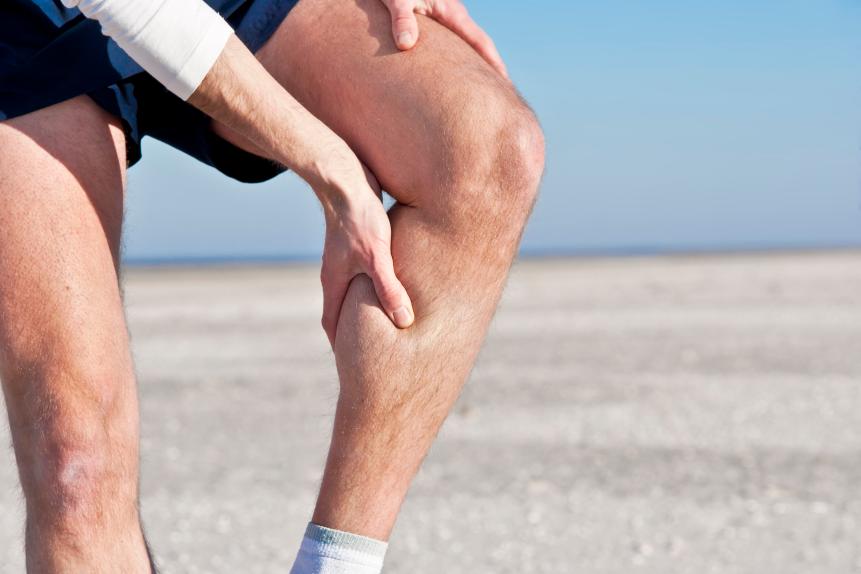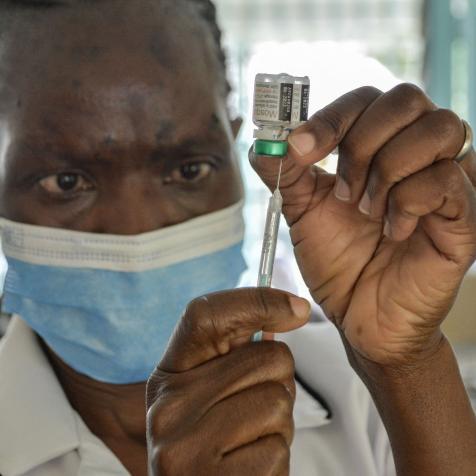
Getty Images
Lactic Acid Is Not What Causes Sore Muscles
Scientists have known that for decades that sore muscles are caused by something else.
A day or two after an intense workout, your muscles are likely to feel pretty sore. There's all sorts of advice out there on how to ease that soreness: take a hot bath, do some light cardio, stretch it out. Whether or not they're good pieces of advice (we'll get to that!), most of them rely on the idea that your soreness is caused by a buildup of lactic acid and that you need to flush it out to feel better. Well, sorry to disappoint: Lactic acid isn't why you're sore. That fact is nothing new, either. Scientists have known that for decades.

Getty Images/Jan-Otto
Frog Legs and False Facts
Oof, that feeling when you award a Nobel Prize for something that turns out to be wrong! Half of the 1926 Nobel Prize for Physiology or Medicine went to Otto Meyerhof for his discovery of something called glycolysis. Meyerhof put a dead frog's legs in a jar and shocked them with electricity to make the muscles contract. After a few contractions, the muscles stopped moving, and on further inspection, Meyerhof found that the muscles were bathed in lactic acid. He concluded that because the muscles had no blood circulation, and therefore no source of oxygen, they had converted the sugary fuel glycogen into lactic acid, a process he dubbed glycolysis. Therefore, muscles without oxygen produce lactic acid, which makes those muscles acidic and lose their ability to contract — then, boom, fatigue. Too bad that was all wrong.
Scientists already knew that lactic acid didn't build up in muscles by the late 1930s (cue a group face-palm for every phys ed teacher who told us that in the last few decades). But it wasn't until the 1970s that a few rogue scientists began to uncover what lactate, the starring molecule in lactic acid, really did. South African biochemist Wieland Gevers showed that the reaction that produces lactate actually makes muscles less acidic, not more. And for his Ph.D. dissertation, exercise physiologist George Brooks found that when he gave rats lactic acid, they burned it faster than any other fuel. Lactic acid wasn't a harmful byproduct of exercise. It was an energy source.
Just in case you're not convinced, take this 1983 study published in The Physician And Sportsmedicine. Researchers had volunteers run for 45 minutes on a treadmill, once with it set level and once with it set to go downhill. They measured the volunteers' blood lactic acid concentration and asked them how sore they were before, during, and at intervals up to 72 hours after the runs. The volunteers felt the sorest after running downhill, even though that was when their lactic acid levels were the lowest. "Results indicated that lactic acid is not related to exercise-induced delayed-onset muscle soreness," the researchers concluded.
The Real Culprit
So what does cause soreness? Science still can't answer that question conclusively. Most likely, your muscles get sore because exercises causes microscopic tears in the tissue, which causes inflammation and a heightened sense of pain. The good news (and more proof that lactic acid buildup isn't to blame) is that the more you do an exercise, the less sore you'll feel thanks to the repeated bout effect. Your body actually makes adaptations after you do an exercise the first few times to make sure your muscles don't get as damaged the next time. What a pal.
As far as getting rid of that soreness? Science doesn't have much of an answer for that, either. "When you look for objective evidence that things like massage, compression and cold water work, you can't always find a consistent story," Michael J. Joyner writes in Sports Illustrated.
Light exercise and pain relievers work a bit, but their effects don't last. A huge systematic review published in 2011 found that, to quote the title, "Stretching before or after exercise does not reduce delayed-onset muscle soreness." Even still, plenty of people swear by it, while others love a hot bath or an easy jog. There's no harm in doing what feels good for you.
This article first appeared on Curiosity.com.


















